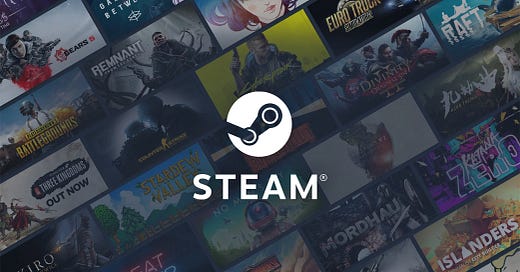Explainer: Why is Steam the centre of the gaming universe
It has fewer users than the Epic Games Store but holds the power to make or break both AAA and indie games.
In nine months of writing about the games industry — but over two decades of playing them — never have I heard so much about one platform that I knew so little about.
Steam came up in most interviews, panels and events, often framed as the centre of the gaming universe. Yet, I've only used it once to download the enhanced version of Baldur's Gate 2, which was on sale.
Being a console gamer, I rarely needed to interact with Steam. But, if your main gaming device is a PC, chances are you can't avoid it.
From what I learned, game developers essentially plan their entire launch and marketing campaign around the whims of this one platform. Getting onto the front page of Steam can be the difference between a title succeeding in terms of sales or fading into obscurity.
With the Steam Deck landing in Australia this week, and it inevitably pulling more gamers into the Steam ecosystem, I’m penning the article I wish I'd read nine months ago. I’ll be answering some burning questions about the his…
Keep reading with a 7-day free trial
Subscribe to Infinite Lives to keep reading this post and get 7 days of free access to the full post archives.




